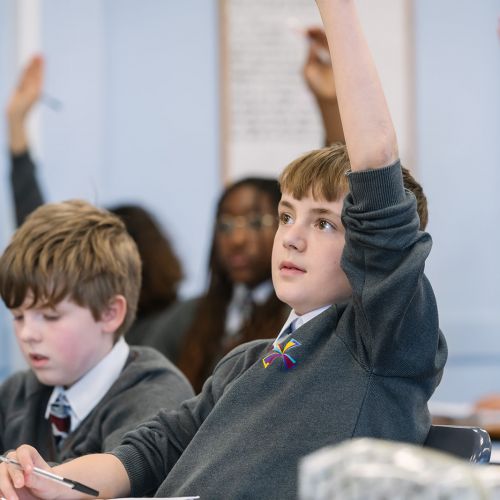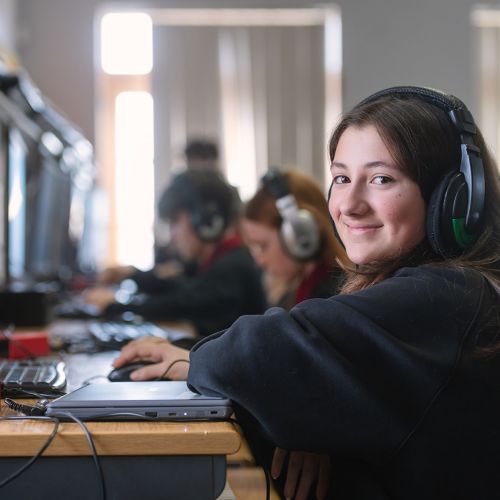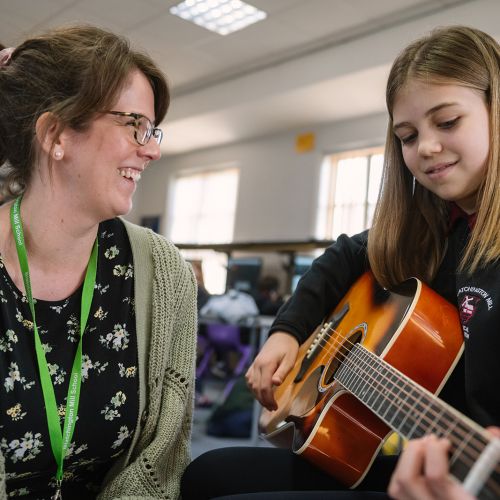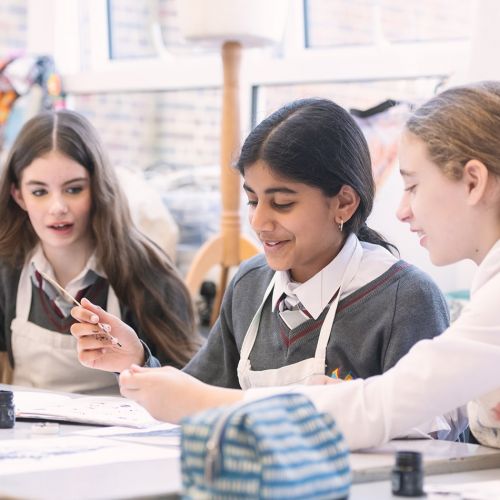Educational Disadvantage





Our Aim:
Our aim at Blatchington Mill School is to use the Pupil Premium as part of wider suite of resources to diminish the gaps in progress and attainment between disadvantaged students and other students. We believe in a holistic approach that recognises the vital role of academic attainment in a child’s future but that looks to address concerns with attendance, conduct, access, participation and other factors key to a child’s successful development. Notably, we view progress as a clear consequence of high quality care and teaching across the school, and seek to create a culture and systems that support staff to provide the high quality education that enables pupils to make great progress.
Our Principles:
'A rising tide lifts all the boats'
“Great schools tend to be great schools for all children in the school – the statistical correlation between who does well for FSM children and who does well for non FSM children is very high.” www.suttontrust.com Pupil Premium Summit Report 2015.
This statement echoes our view that securing high quality teaching for all students will have a markedly positive impact on those from disadvantaged backgrounds, especially those with fewer external opportunities for quality educational instruction or experiences. A focus on securing high quality instruction to underpin an ethos of progress for all, as opposed to chasing specific attainment gaps, is likely to have a more sustained impact because the quality of teaching in general is improved, training is spread more widely and resources used to affect more staff and students. As such when prioritising our use of resources, including the Pupil Premium, we start with improving teaching and learning across the school.
Evidence Based, Impact Focused
At Blatchington Mill we choose to focus on strategies for closing the disadvantage gap that have a record of success or that are likely to improve pupil outcomes based on evidence. We believe it is important to examine the possible impact of our decisions based on available evidence, not anecdote.
Our evidence base include:
- research into approaches in other relevant contexts (e.g. EEF's Teaching and Learning Toolkit, relevant educational publications, educational journals and blogs),
- in school behaviour and conduct data,
- the observations of fellow professionals,
- local and school academic performance data,
- our own quality assurance processes.
Sustainable long term improvements, not one-off events
Our strategy for the Pupil Premium focuses on engendering support and instruction that becomes embedded as best practice so that disadvantaged pupils are supported consistently and effectively as a matter of course. For sustainable improvement, it is our view that we must invest in teaching and support staff, who with their time, expertise and skill are a school’s most important resource and therefore lever for change. Thus we use the Pupil Premium to invest in quality resources, spaces and training to improve how our staff can support our disadvantaged students. We do not look to use the Pupil Premium to fund one off purchases or incentives that we cannot use to have a sustainable impact.
Recognise the differences
Disadvantaged pupils are not a homogenous group and work needs to be done to understand the specific barriers these pupils face as individuals or small groups. Indeed, there are students who are disadvantaged in several forms, be it lacking financial means, having a special educational need or even being socially or culturally disadvantaged. Whereas there are those students who are financially disadvantaged but do not actually need a great deal of support to make excellent progress.
Therefore we find it more appropriate not to use labels but to seek out those pupils who are educationally disadvantaged and underachieving so we can target our support to them. Often this will include those who are in receipt of the pupil premium but not always. We endeavour to know each pupils needs, which could include literacy issues, poor attendance, social and emotional upheaval, weak numeracy or cognitive difficulty or any number of needs. In many cases similar approaches will work for different groups, some of which can be done in group formats and in others 1-2-1 may be required. Our overall goal though is to focus on those that educationally really need our help, not to waste funding or to target support in the wrong place.
Blatch Context
Blatchington Mill is an inclusive school, our student body has a wide range of SEN, pupils from varying backgrounds and a number (274) who qualify for the Pupil Premium, of which (146) also qualify for Free School Meals. This variety makes our school an exciting and rich place to study and work but it also brings challenges. Attainment and progress of vulnerable groups needs to be accelerated and we are fully engaged in our effort to change this.
We are making significant progress in our efforts to drive up the progress of pupils from disadvantaged backgrounds. In 2017, our cohort of Pupil Premium students gained a P8 score of -0.44, and we had a gap of -0.56 between our Pupil Premium and Non-Pupil Premium students. However in 2018 our year 11 cohort of 69 Pupil Premium students had a P8 score of -0.18, with the gap reduced to -0.21. Halving the gap in progress highlights the positive progress we are making due to our strategy above. Indeed for 2018-19 all staff have an appraisal target ‘to improve progress for ‘educationally disadvantaged’ students’, from which they will set targets to directly benefit this group, underlining our commitment to continued improvement.
Blatchington Mill School is eligible for Pupil Premium funding and the following reports provide details on the amount of funding and how it is used:
Pupil Premium Report 2022-23 [pdf]
Pupil Premium Report 2023-24 [pdf]
Help the school get more money!
Schools get additional funding for each and every student that is eligible for free school meals.
At Blatchington Mill School and Sixth Form College we use this money carefully to support student needs and to ensure progress for all.
Brighton and Hove City Council have a simple and confidential application process and can quickly give you an answer. As well as receiving subsidised school lunches your child or young person could then be eligible for assistance with the cost of some extracurricular activities and trips.
School budgets are being set now and so it is an ideal time to apply.
If you have already applied there is no need to repeat the process.
- You can do this online by following this link: www.brighton-hove.gov.uk/content/children-and-education/schools/applying-online-free-school-meals
- or by telephoning the School Meals Team on 01273 293497

